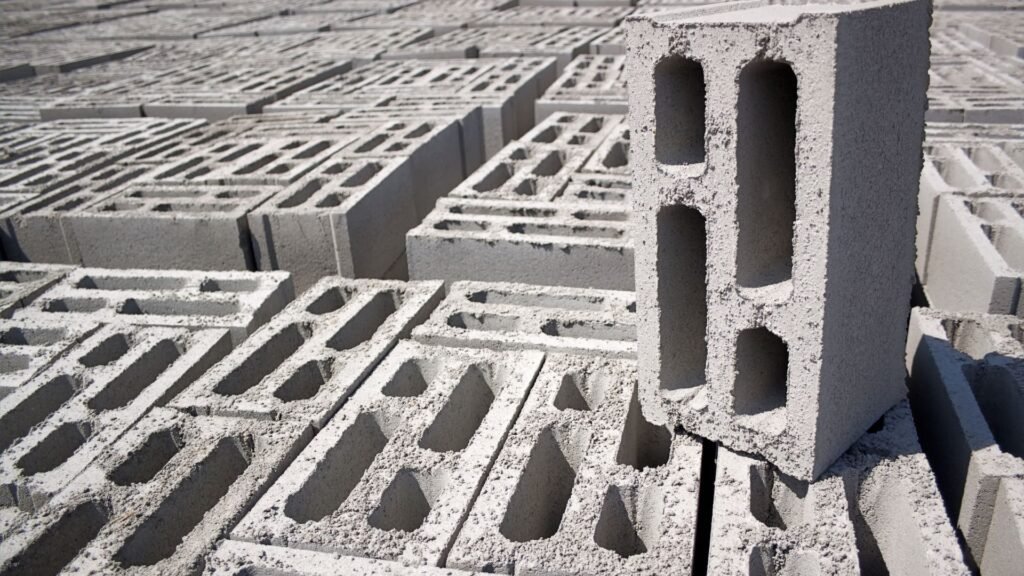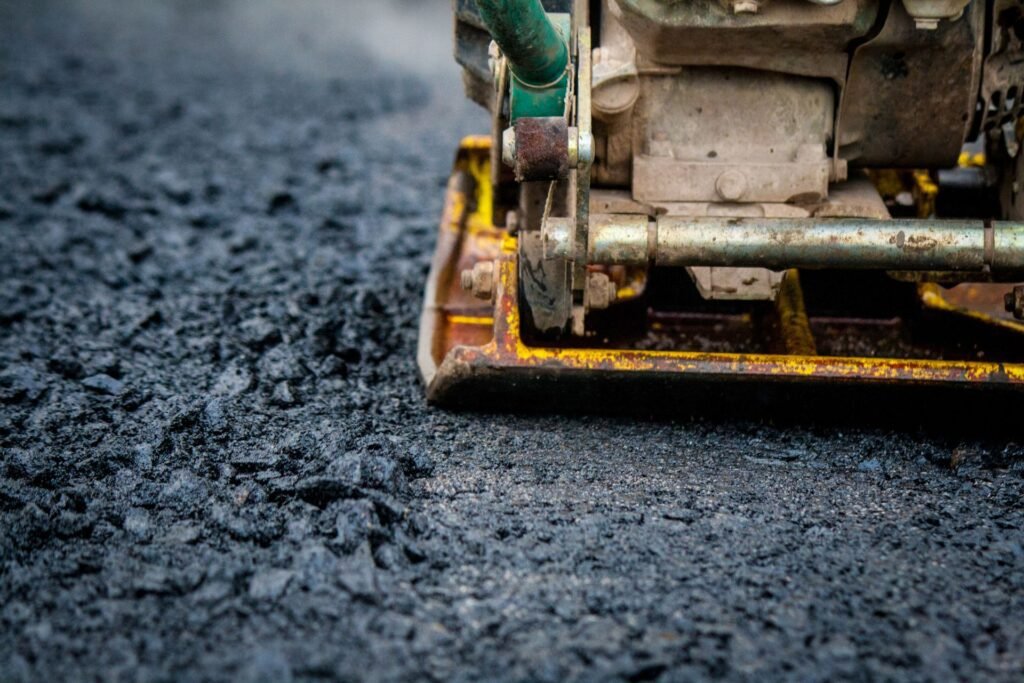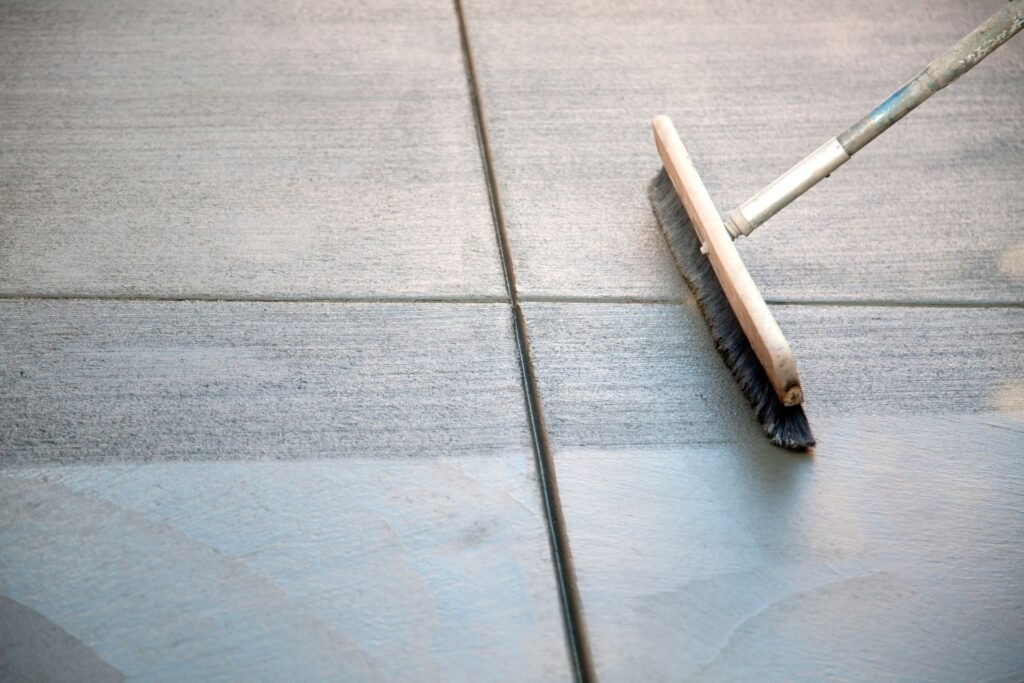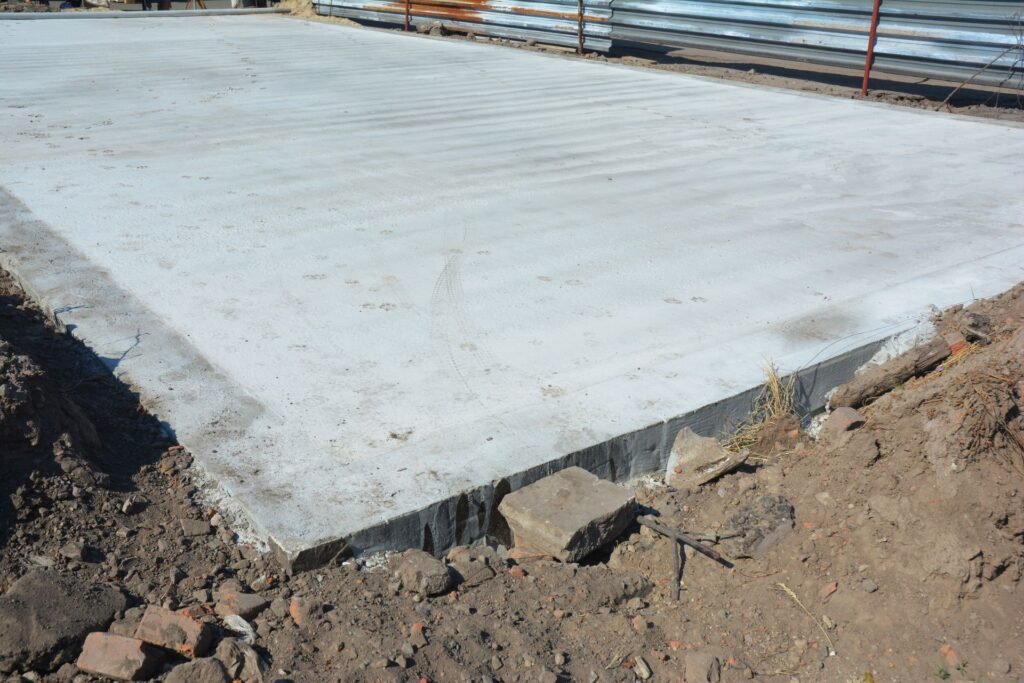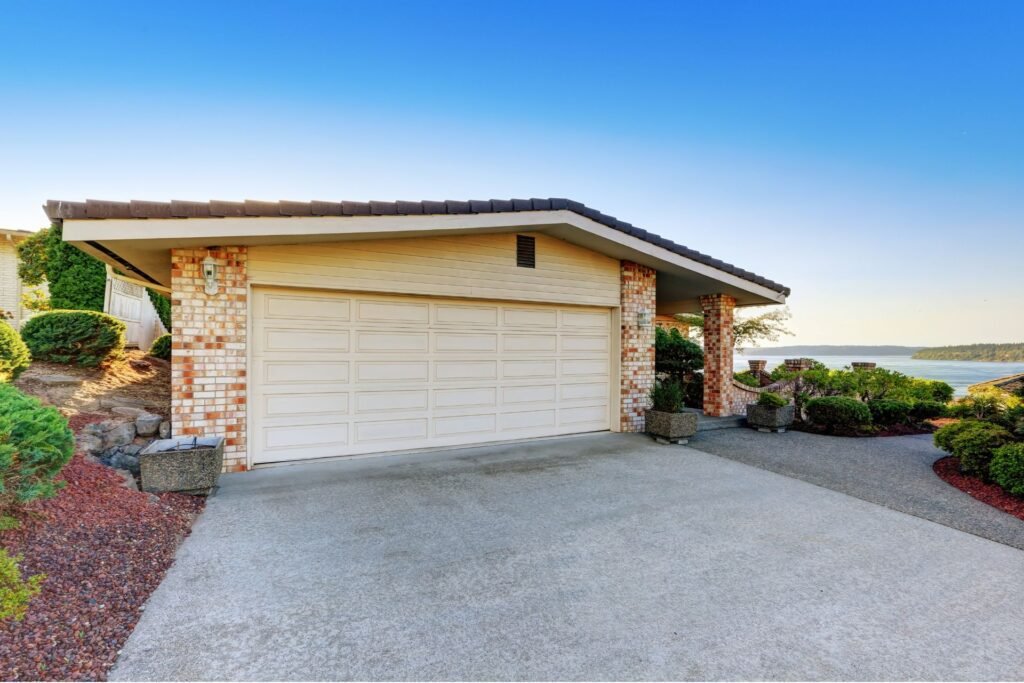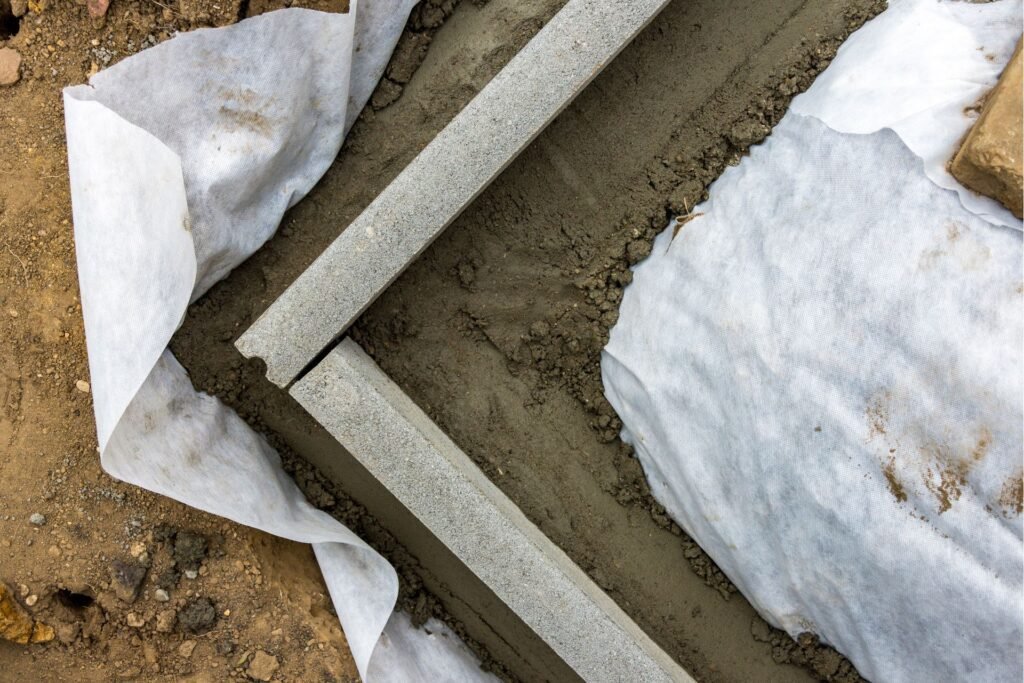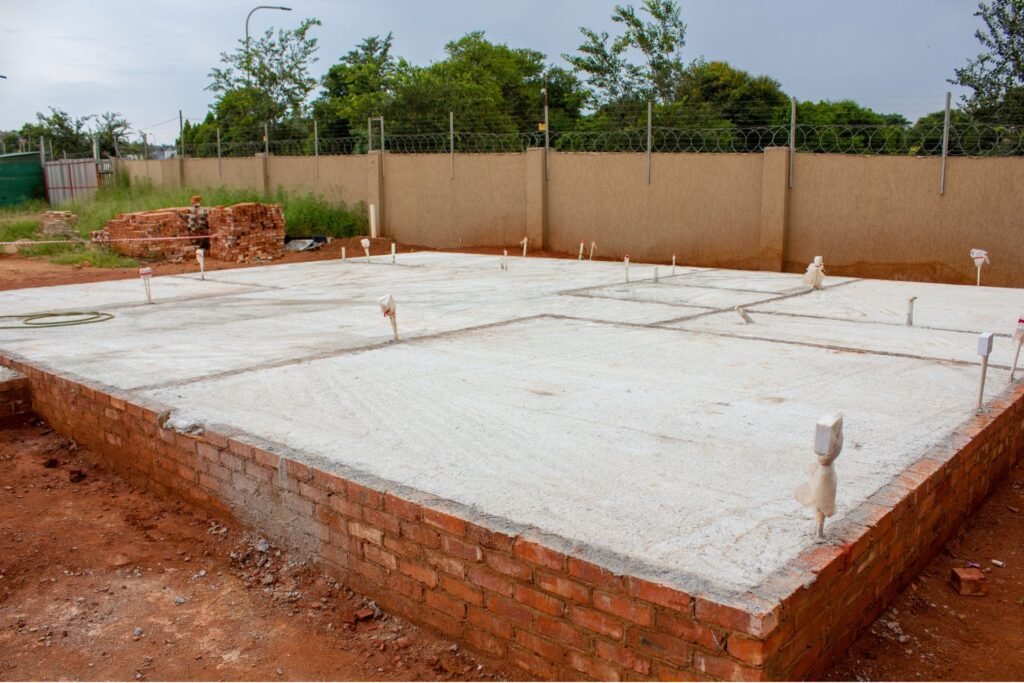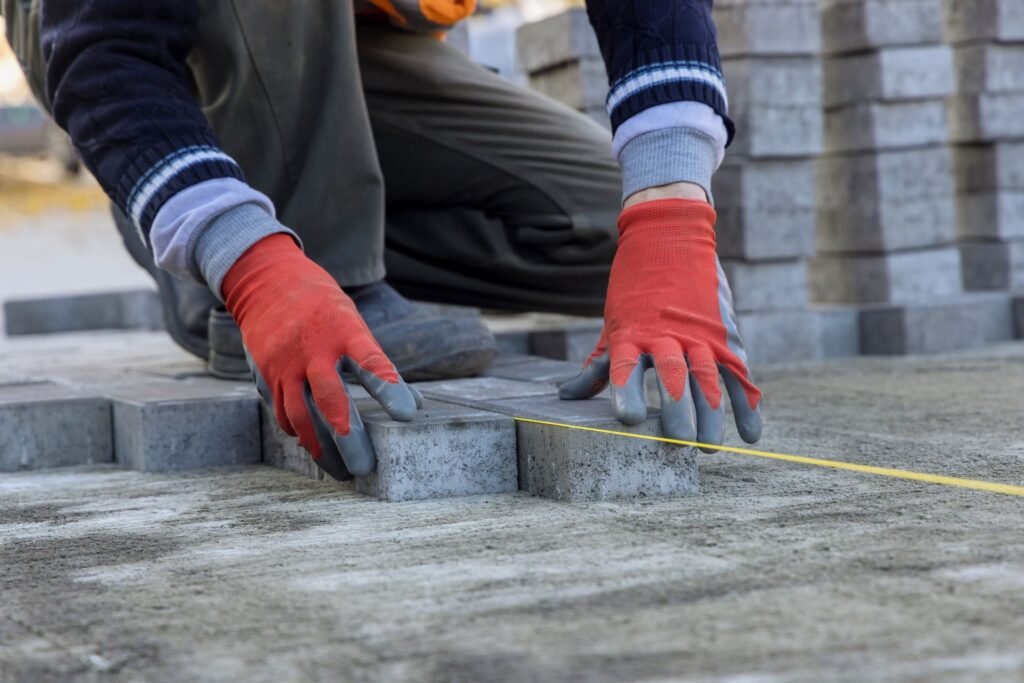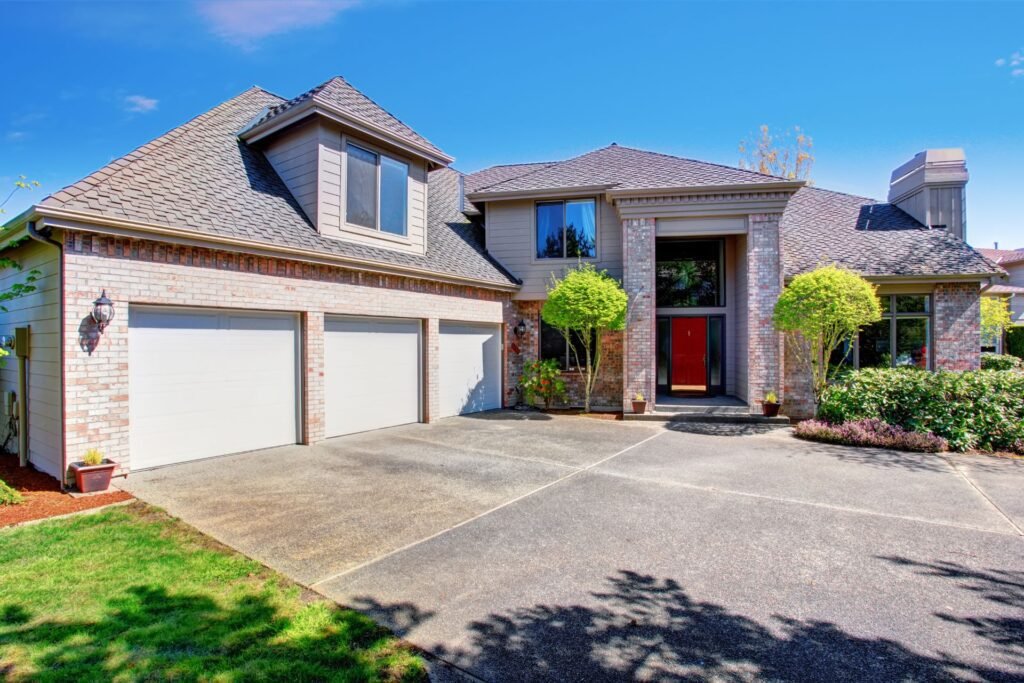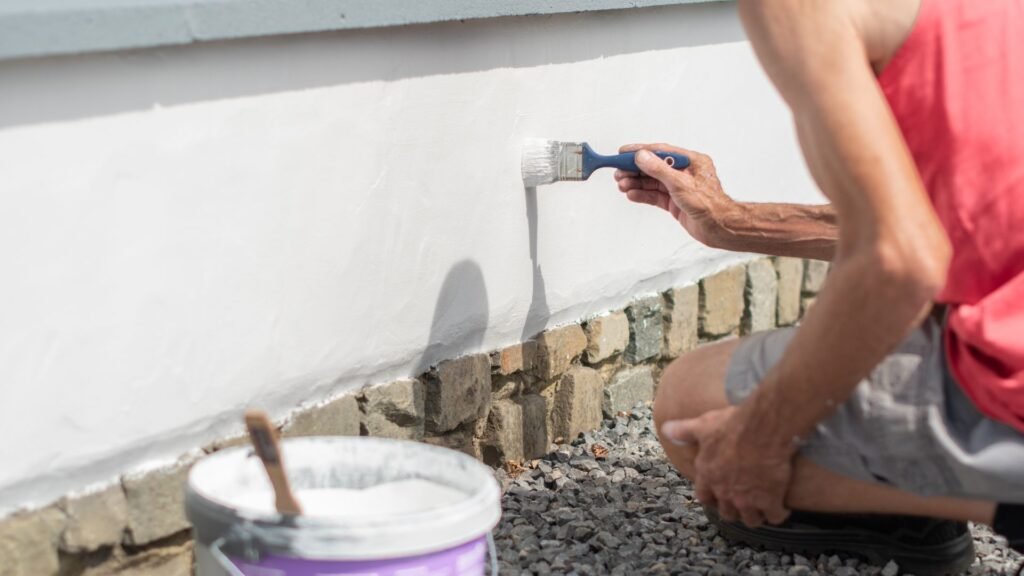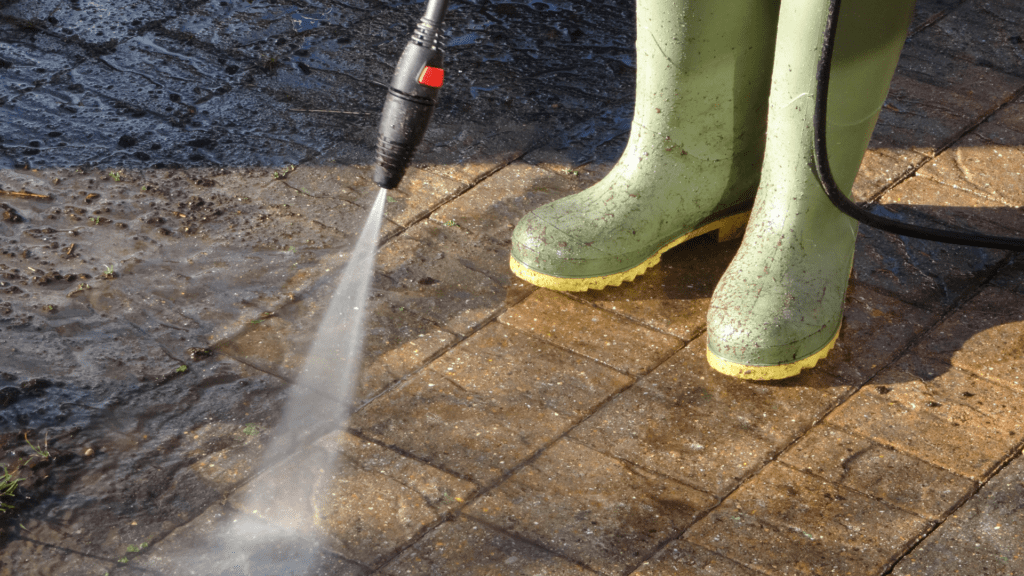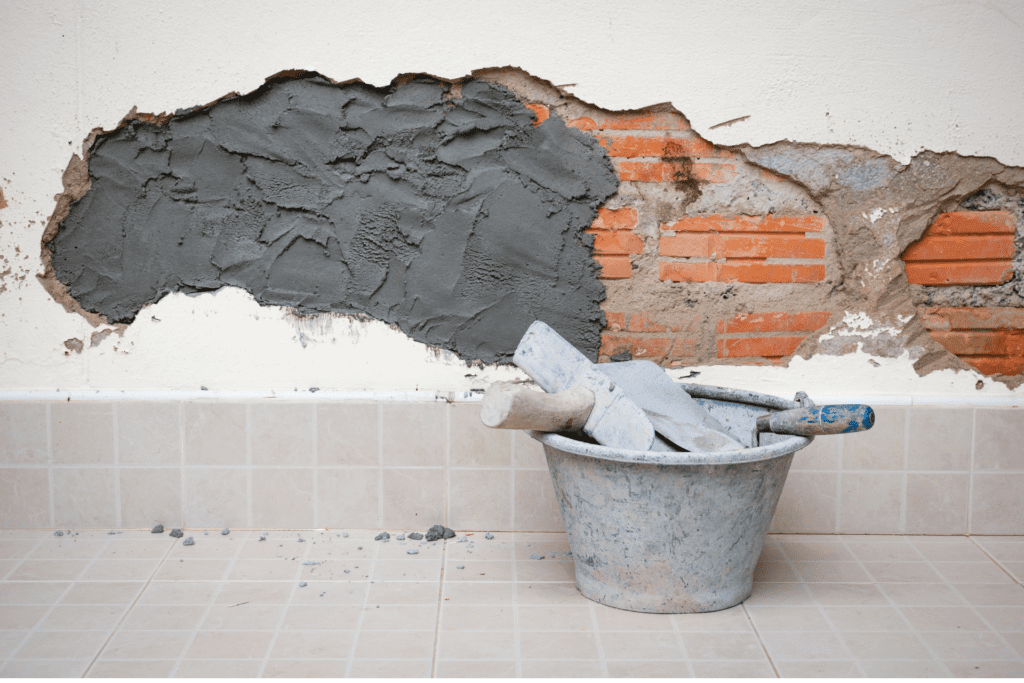Welcome to your go-to guide on concrete blocks in NZ. Whether you’re planning a DIY retaining wall, building a garage, or just exploring durable construction options, concrete blocks are a practical choice for many Kiwi homeowners and builders. They’re strong, low-maintenance, fire-resistant, and built to handle New Zealand’s ever-changing weather. But before you grab a trolley or call your builder, it helps to understand the different types available, what they cost, and how to use them right. This guide covers everything you need to know, without the jargon, so you can make smart, confident decisions for your next project.
Concrete blocks in NZ are durable, cost-effective building materials used for walls, fences, garages, and retaining structures. Available in various types like hollow, solid, and decorative blocks, they’re ideal for New Zealand’s climate and construction needs.
Table of Contents
What Are Concrete Blocks?
Concrete blocks, also known as cinder blocks or masonry blocks, are precast rectangular units made from a mixture of cement, sand, gravel, and water. They’re widely used in New Zealand for constructing walls, fences, garages, garden beds, and retaining walls. These blocks offer strength, stability, and fire resistance, making them a trusted choice for both residential and commercial building projects.
Unlike bricks, which are typically smaller and made from clay, concrete blocks are larger and designed to reduce construction time. Their size allows for faster wall assembly, fewer joints, and lower labor costs, especially important for large builds or DIY home improvement jobs.
Simple Explanation Of Concrete Blocks
At their core, concrete blocks are just shaped concrete made in a mold. Once set and cured, these blocks are strong enough to be stacked, joined with mortar, and reinforced to form walls or other structures. While many people refer to them as cinder blocks, the term “concrete block” is more accurate in New Zealand, as these typically don’t include cinders or fly ash.
They come in a variety of shapes and thicknesses depending on their purpose. For example, standard hollow blocks are often used for load-bearing walls, while solid blocks might be chosen for their strength or specific structural requirements.
Common Materials Used
Concrete blocks are made using a basic mix of:
- Cement: the binding agent that holds everything together.
- Sand: fine aggregate that improves the texture and fills gaps.
- Gravel or Crushed Stone: coarse aggregate that adds strength.
- Water: activates the cement and helps the mixture set.
Some manufacturers may include additives or recycled materials to improve durability or lower production costs. These ingredients are mixed, poured into molds, compacted, and then cured over time to gain strength.
Typical Sizes And Shapes Used In NZ
In New Zealand, the most commonly used concrete block is the standard 390mm x 190mm x 190mm unit. This size is ideal for most wall constructions and works well with NZ’s standard building practices.
Other available sizes include:
- Half blocks for ends or adjustments
- U-shaped lintel blocks (used above doors and windows)
- Corner blocks
- Bullnose blocks for smooth edges
- Paving or decorative blocks for aesthetic use
These variations allow builders to create durable, well-fitted structures with minimal cutting or waste.
Difference Between Hollow Vs Solid Blocks
Hollow Concrete Blocks
These blocks have hollow centers that reduce their weight and improve insulation. They’re ideal for large structures or load-bearing walls when reinforced with steel and concrete. The hollows also allow for easy placement of plumbing or electrical wiring.
Solid Concrete Blocks
These are heavier and denser, offering greater strength. They’re best for foundations, small retaining walls, or areas requiring high impact resistance. Solid blocks don’t need reinforcement as often, but they can be harder to handle and more expensive to transport.
Both types are widely available across NZ and serve different purposes depending on your project’s size, location, and structural needs.
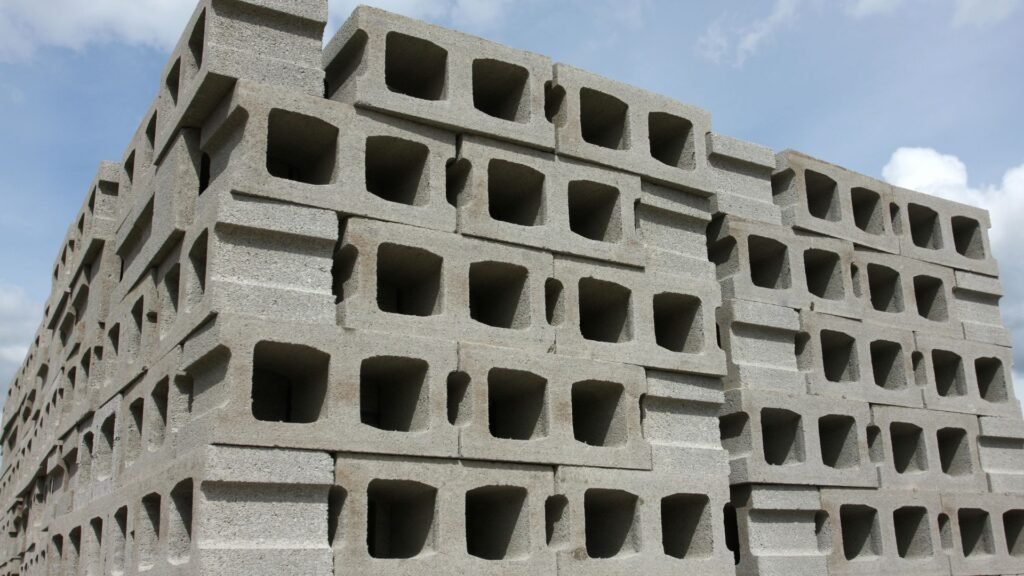
Why Use Concrete Blocks In NZ?
Concrete blocks are a smart and reliable choice for building in New Zealand. Whether you’re constructing a retaining wall, laying the foundation for a garage, or building a fence, concrete blocks offer real advantages that suit our environment and building needs. Below, we break down the top reasons why they’ve become a go-to material for both homeowners and professional builders across the country.
Strong And Durable In New Zealand’s Variable Weather
New Zealand’s climate can be unpredictable. From humid coastal air to frosty inland winters, building materials need to hold up under pressure. Concrete blocks are engineered for strength and resilience. They won’t warp, rot, or degrade like timber when exposed to moisture. Once installed properly, they can withstand harsh conditions for decades without breaking down. This makes them ideal for outdoor and structural use, especially in regions with high rainfall or temperature fluctuations.
Fire-Resistant And Low-Maintenance
Concrete blocks are non-combustible, meaning they won’t catch fire or contribute to the spread of flames. In rural and bush-prone areas of NZ, this added fire resistance offers peace of mind. They’re also low-maintenance. Unlike wood, they don’t need staining, sealing, or regular upkeep. Once built and sealed correctly, they require minimal attention, saving you time and money over the years.
Sound Insulation For Noisy Environments
If you live near a busy road, school, or commercial area, sound insulation becomes a big deal. Concrete blocks naturally absorb and block noise, making them a great choice for homes and buildings where peace and quiet are a priority. Thicker block walls can significantly reduce outside noise, which is why many use them in home studios, offices, and urban housing projects.
Widely Available And Cost-Effective
Concrete blocks are one of the most accessible building materials in NZ. You can find them at major retailers like Bunnings or Mitre 10, as well as from local manufacturers and trade suppliers. They’re also budget-friendly. When compared to brick or timber, concrete blocks often cost less, especially when used at scale. Bulk discounts and local supply options can help reduce delivery costs, too.
Ideal For Retaining Walls, Homes, Fences, Garages, And More
Their versatility is a major benefit. Concrete blocks can be used for structural walls, foundations, garden edging, fire pits, fencing, and even entire homes. You’ll find them in both DIY and large-scale commercial projects. Builders appreciate their consistent sizing and ease of stacking, while homeowners like the durability and clean look. Whether you’re reinforcing a slope or building a new garage, there’s likely a concrete block made specifically for the job.
Concrete blocks in NZ aren’t just popular, they’re practical. Their strength, fire resistance, acoustic benefits, and affordability make them a smart option for almost any project. If you’re building something to last, concrete blocks deserve serious consideration.
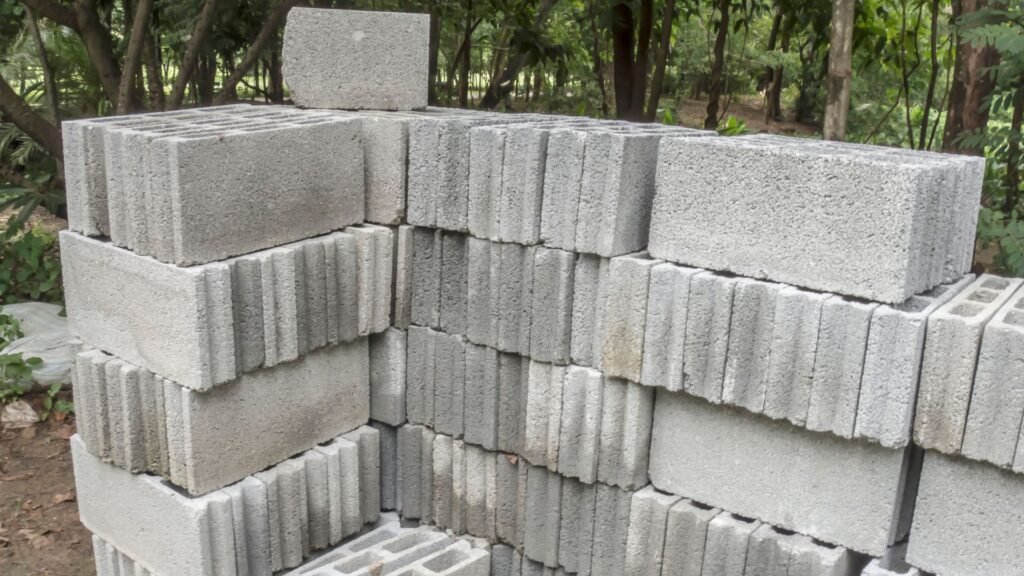
Different Types Of Concrete Blocks Available In NZ
Concrete blocks are not one-size-fits-all. In New Zealand, you’ll find a variety of concrete blocks, each designed for a specific purpose. Whether you’re building a fence, retaining wall, garden bed, or a full structural wall, there’s a block made to suit your needs.
Understanding the different types of concrete blocks helps you pick the right one for your project, and avoid costly mistakes later.
Standard Hollow Blocks
Standard hollow blocks are the most common type used in NZ construction. These blocks have two or three vertical cavities that make them lighter and easier to handle. Use cases:
- Exterior walls
- Load-bearing walls (when reinforced)
- Garage or shed builds
Hollow blocks are ideal for projects that require steel reinforcement and concrete filling. Their design allows for better insulation and faster construction.
Solid Concrete Blocks
Solid concrete blocks are heavier and denser than hollow blocks. They don’t have cavities and are often used when strength and stability are critical. Use cases:
- Foundations
- Boundary walls
- High-load-bearing structures
Because they’re solid all the way through, they’re more resistant to weather and impact, making them a great choice for long-lasting outdoor structures.
Decorative And Architectural Blocks
These blocks are made for more than just strength, they’re designed to look good too. Decorative and architectural blocks come in different textures, finishes, and colors. Use cases:
- Feature walls
- Front fences
- Garden borders
Some have patterns molded into them, while others are made with split face or polished finishes. They help you get the durability of concrete with a cleaner, more stylish look.
Paving And Retaining Wall Blocks
While not used for walls, paving and retaining wall blocks still fall under the broader category of concrete masonry. These are purpose-built for landscaping projects. Use cases:
- Driveways
- Garden paths
- Raised garden beds
- Terraced retaining walls
They often come in interlocking shapes and are easier to stack and secure with minimal mortar or adhesive. Retaining wall blocks usually include a lip or groove to keep rows aligned.
Specialty Blocks (E.G., Corner Blocks, Lintel Blocks)
Specialty blocks are designed for specific parts of a wall or structure. They make construction more efficient by eliminating the need to cut or modify standard blocks. .Types include:
- Corner blocks: used at 90-degree wall turns
- Lintel blocks: support openings like doors or windows
- Jamb blocks: for frames and fittings
- Bullnose blocks: for rounded edges or corners
Using the right specialty block not only improves strength but also gives the build a cleaner finish.
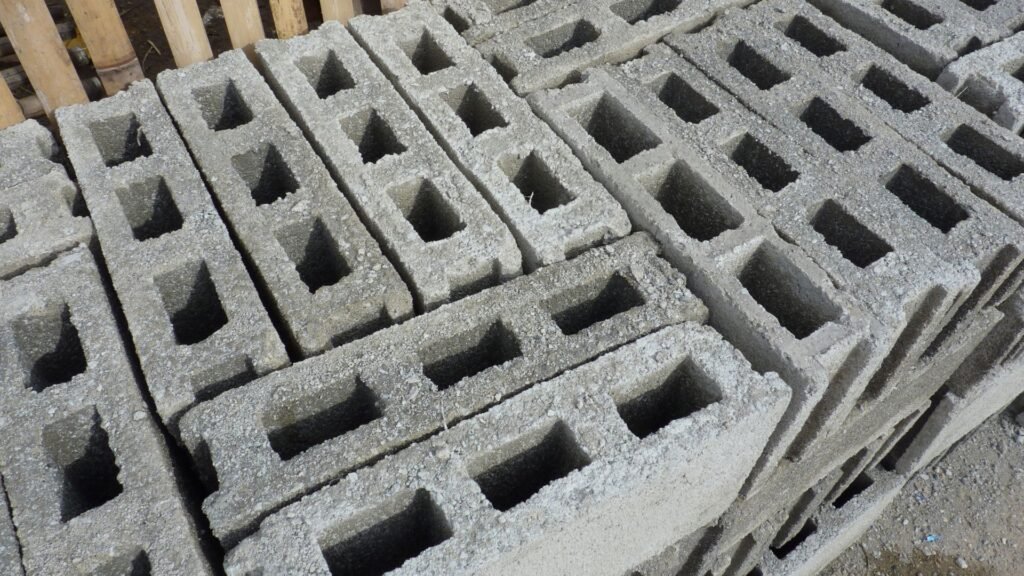
Where To Buy Concrete Blocks In NZ
Concrete blocks are easy to find across New Zealand, but choosing the right supplier makes all the difference. Whether you’re building a small garden wall or a full-scale structure, where you buy your blocks can affect quality, price, and project success.
Let’s look at the best places to source concrete blocks in NZ and what you should always check before buying:
Local Hardware Stores (Mitre 10, Bunnings)
Mitre 10 and Bunnings are the go-to spots for many DIYers and small-scale builders. They offer a range of standard concrete blocks in various sizes, including hollow and solid options. These stores usually carry blocks that are suitable for:
- Garden walls
- Small retaining walls
- Pathway borders
- DIY fences
Shopping here is convenient. You can check availability online, compare prices, and pick up blocks in-store or have them delivered. Plus, staff can answer basic questions or direct you to installation guides and accessories like mortar and reinforcing steel.
Builders’ Supply Merchants
For larger projects or more specific needs, builders’ merchants often offer better pricing, wider selection, and access to trade-grade products. Examples include PlaceMakers, ITM, and Carters.
These suppliers work closely with contractors and often provide:
- Bulk discounts
- Delivery to site
- Specialty blocks not found in retail stores
- Expert support for technical questions
If you’re working with a builder, they may already have a preferred merchant with reliable stock and pricing.
Direct From Manufacturers (Firth, Concretec, Etc.)
Buying straight from the source can be a smart move, especially for big jobs or custom orders. Leading NZ manufacturers like Firth, Concretec, and Viblock offer a full range of concrete products, including:
- Standard blocks
- Architectural and decorative blocks
- Pavers and retaining wall systems
- Custom shapes and finishes
Going direct allows you to:
- Order exactly what you need
- Get detailed product specs and strength ratings
- Ask about sustainability certifications or recycled content
- Arrange large-volume deliveries efficiently
Some manufacturers also have display centers or showrooms, which can help if you’re trying to match a design style.
What To Check Before Buying
No matter where you shop, don’t just grab the first stack of blocks you see. Here’s what to check:
- Quality: Look for smooth surfaces, sharp edges, and uniform color. Avoid blocks with cracks or chips.
- Strength Rating: In NZ, concrete blocks must meet specific building standards. Check the manufacturer’s specs or ask the supplier to confirm strength ratings.
- Size and Type: Make sure the blocks match your project plans, standard, hollow, corner, lintel, or decorative types.
- Stock Availability: For large projects, ensure the supplier can deliver all units at once. Delays in supply can slow construction.
- Returns and Extras: Ask about return policies for unused blocks and consider ordering 5–10% extra to cover breakage or last-minute changes.
Choosing the right supplier helps you stay on budget, meet compliance standards, and keep your project running smoothly. Whether you’re a weekend builder or a contractor, sourcing smart is just as important as building strong.
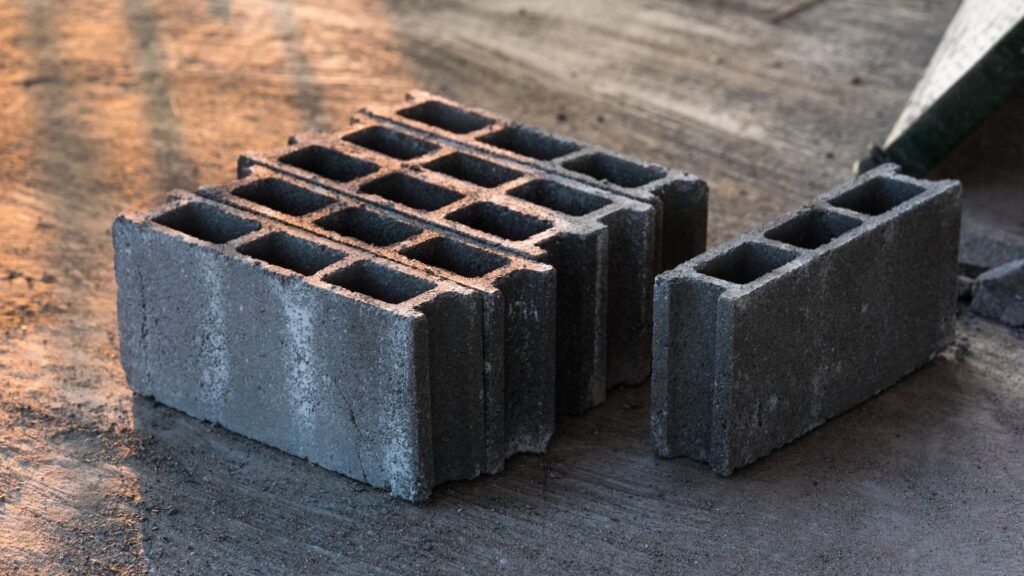
How Much Do Concrete Blocks Cost In NZ?
If you’re planning to build with concrete blocks in New Zealand, one of the first questions you’ll ask is: how much is it going to cost? The good news is that concrete blocks are affordable and widely available across the country. But like any building material, prices can vary depending on the type of block, your location, and how many you need.
Typical Price Range Per Block
Standard concrete blocks in NZ usually cost between $2 and $5 each. These are the most common hollow or solid blocks used for walls, fences, and garden features. If you’re buying from large retailers like Mitre 10 or Bunnings, you’ll typically see prices around.
- $2.00 to $3.50 for standard hollow blocks
- $3.50 to $5.00 for solid or high-strength options
Decorative or architectural blocks may cost more, sometimes $6 or higher, especially if they have textures, colors, or special finishes.
Cost Differences Based On Block Type Or Supplier
Not all concrete blocks are created equal. You’ll see price variations depending on the type you choose:
- Hollow blocks are cheaper because they use less material and are easier to handle.
- Solid blocks cost more but offer higher strength and density.
- Specialty blocks (like corner or lintel blocks) come at a premium due to their unique shapes.
- Decorative blocks designed for fences or facades are priced higher for their aesthetic appeal.
Suppliers also impact price. National chains may offer lower prices for DIY buyers, while local manufacturers might give better deals for bulk or trade customers. Always compare quotes from at least two or three places.
Price Factors (Location, Delivery, Bulk Orders)
Several key factors can influence the final cost of concrete blocks:
- Location: Remote or rural areas may see higher delivery charges or limited availability. Urban centers tend to have more competitive pricing.
- Delivery fees: For larger orders, delivery can add $100–$300 depending on distance and truck size.
- Bulk orders: If you’re buying hundreds or thousands of blocks, you may qualify for volume discounts. Always ask suppliers if they offer trade pricing.
- Pallet quantity: Blocks are usually sold by the pallet for large jobs. A pallet might contain 72 to 108 blocks, depending on the type and size.
Also, check if the quote includes GST and pallet return fees. Some suppliers add these extras after you confirm your order.
Estimate Example For A Standard Fence Or Wall
Let’s say you’re building a 10-metre long fence, 1.8 metres high. That’s roughly 18 square metres of wall.
If you use standard hollow blocks (each 390mm x 190mm), you’ll need about 13 blocks per square metre. So:
- Total blocks needed: 13 x 18 = 234 blocks
- Block cost at $3.00 each: 234 x $3 = $702
- Add mortar, delivery, and possible wastage (~10%)
- Estimated total project cost: $850 to $1,000 (DIY)
Hiring a professional builder will increase the price due to labor and equipment. But this rough breakdown gives you a realistic starting point if you’re budgeting for materials.
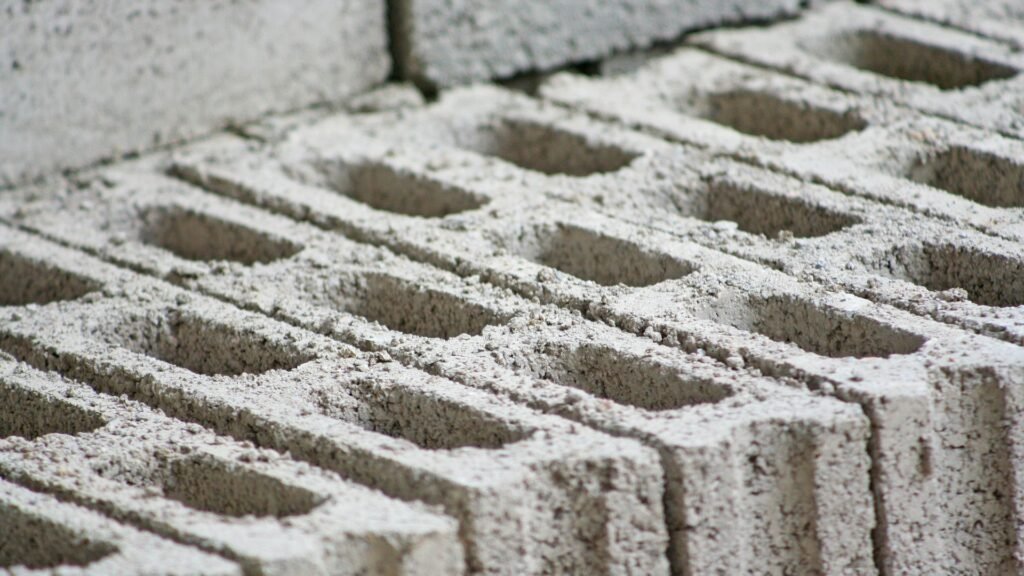
DIY Or Hire A Builder?
Building with concrete blocks can seem simple on the surface, but whether you should do it yourself or hire a builder depends on a few key factors, safety, legality, skill level, and the size of your project. Let’s walk through what you need to know to make the right call.
When It’s Safe And Legal To DIY
In New Zealand, some small construction projects can legally be done by homeowners without the need for building consent or a licensed builder. For example, if you’re building a low garden wall under 1.5 metres that isn’t retaining soil, you likely don’t need council approval.
However, if your concrete block project involves:
- Load-bearing walls
- Retaining soil
- Being attached to a dwelling
- Exceeding height limits
Then you’ll need building consent and, in most cases, a licensed builder. Always check with your local council before starting. Every region has slightly different rules, and it’s not worth risking fines or having to tear your project down.
What Tools And Skills You’ll Need
If you’re cleared to go the DIY route, make sure you have the right tools and a basic level of building confidence. You’ll need it:
- A concrete block trowel
- Level and measuring tape
- Spirit level and string line
- Wheelbarrow and shovel
- Mortar mix or concrete
- Safety gear (gloves, eye protection)
You also need to understand:
- How to lay the first course of blocks straight
- How to mix mortar to the right consistency
- How to create a strong bond between blocks
- When and how to reinforce with steel or fill with concrete
Watching a few YouTube tutorials helps, but nothing beats hands-on practice. Start small if you’re new to masonry.
Tips For First-Time DIYers
- Plan everything in advance. Sketch your layout and measure the area twice before buying materials.
- Lay a solid base. A proper concrete footing is non-negotiable. Weak foundations lead to unstable walls.
- Keep blocks level. Check every row with a spirit level to avoid leaning or crooked walls.
- Don’t rush. Work slowly, especially when applying mortar and placing each block.
- Clean as you go. Mortar smears are easier to remove while still wet.
Take your time. The goal isn’t speed, it’s strength and accuracy.
When It’s Better To Call A Builder
Some jobs are best left to the pros. If your project involves:
- A retaining wall with engineering requirements
- Tall or complex structures
- Permits or inspections
- Poor access or uneven ground
- Tight deadlines
You’ll save time, money, and stress by hiring a licensed tradesperson. Professionals know how to manage drainage, reinforcement, and compliance, and they come with the tools and manpower to do the job right.
Mistakes with concrete blocks can be hard, and expensive, to fix later.
How To Find A Licensed Tradesperson In NZ
To find a qualified builder in your area:
- Use the official Licensed Building Practitioner Register
- Ask your local council for referrals
- Check reviews on Builderscrack or NoCowboys
- Ask for examples of past work and references
- Always confirm they’re insured and familiar with block work
Avoid hiring based on price alone. Look for builders with clear communication, experience in concrete masonry, and a solid reputation in your region. Whether you take on your concrete block project yourself or bring in a professional, the key is knowing your limits and planning properly. There’s no shame in calling in a builder if the job is outside your skill set. In fact, it might save you time, money, and a few grey hairs.
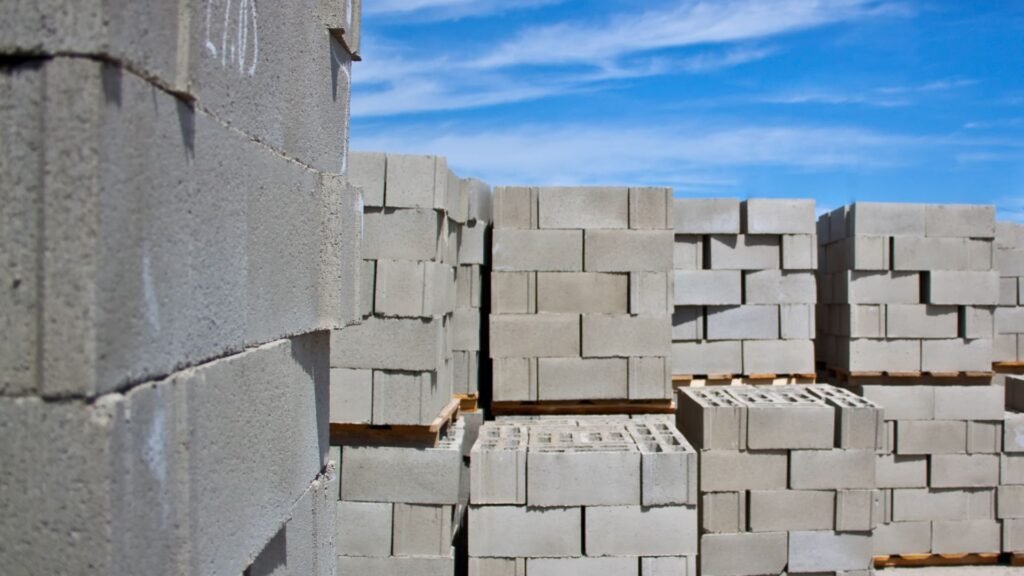
Tips For Using Concrete Blocks Effectively
When working with concrete blocks in New Zealand, cutting corners can lead to long-term issues, cracks, drainage problems, or worse, structural failure. To get the most out of your build, you need to plan properly and follow a few proven techniques. Here’s a breakdown of what really matters when using concrete blocks the right way.
Choosing The Right Block For Your Project
Not all concrete blocks are the same. Before you buy, consider what you’re building. Solid blocks are great for foundations and heavy-duty walls. Hollow blocks work well for general walls and are easier to reinforce with steel and concrete. Decorative blocks suit garden walls or fences where looks matter as much as function. Think about it:
- Load-bearing needs: Will it carry weight?
- Location: Will it face water, soil pressure, or wind?
- Finish: Will you render, paint, or leave it exposed?
Matching the block type to your project saves money, time, and future repairs.
Importance Of A Solid Foundation
No wall is stronger than its base. A concrete block wall must sit on a level, reinforced foundation. The footing needs to be wide and deep enough to handle the weight of the blocks and any additional loads like soil or fencing. For most standard walls in NZ.
- Dig below the frost line and undisturbed soil
- Pour a reinforced concrete footing
- Let it cure fully before stacking blocks
A weak base leads to cracking, tilting, and failed inspections.
Waterproofing And Drainage Tips
Moisture is one of the biggest threats to concrete block structures. Even though concrete is tough, it’s porous. Water can seep through, causing mold, staining, and structural damage over time. To prevent this:
- Apply waterproofing paint or membrane to the exterior wall
- Use damp-proof courses in walls touching the ground
- Install proper drainage behind retaining walls (gravel backfill and drainage pipes)
Without proper drainage, especially in NZ’s wet regions, your wall won’t last.
Don’t Skip Reinforcement (Steel Bars, Concrete Fill)
Concrete blocks alone aren’t always strong enough for structural walls. Reinforcement is key, especially for retaining walls, high fences, or anything load-bearing. Hollow blocks are designed to be filled with concrete and rebar (steel rods). What you need:
- Vertical and horizontal steel bars placed in cores
- Grout or concrete fill to bind everything
- Spacing according to wall height and local codes
Reinforced blocks resist bending, cracking, and movement, critical in NZ’s seismic zones.
Compliance With NZ Building Codes
In New Zealand, many concrete block projects fall under the Building Code. You may need consent for structural walls, high fences, or retaining walls that affect drainage or boundaries.
Here’s what to check:
- Wall height and proximity to boundaries
- Load-bearing status and design specs
- Reinforcement and drainage details
- Licensed building practitioner (LBP) requirements
Even if you’re doing it yourself, it’s smart to speak with a council officer or qualified builder first. A compliant build keeps you safe, insurable, and resale-ready.
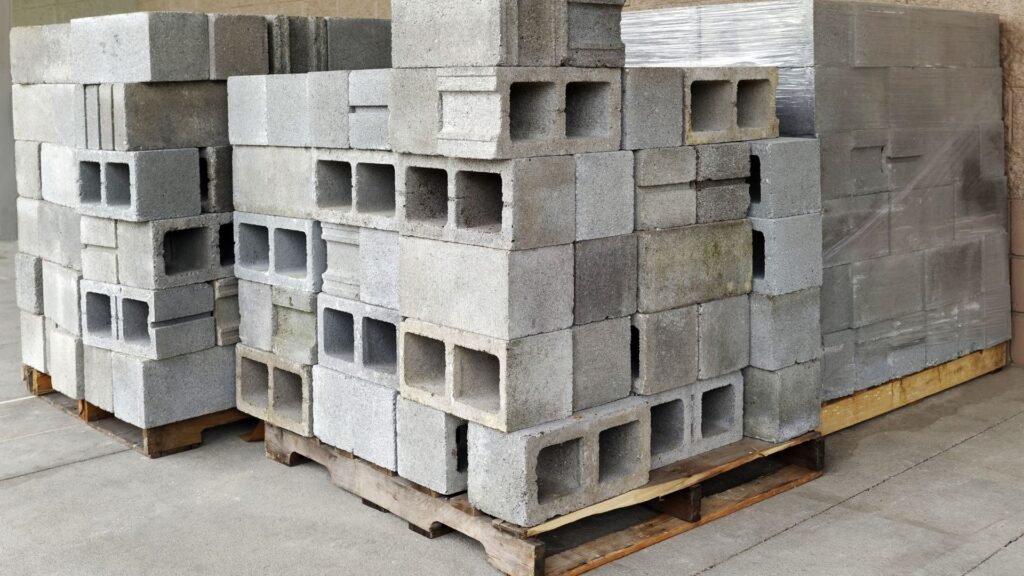
Common Mistakes To Avoid
Building with concrete blocks in New Zealand offers strength, durability, and design flexibility, but only if you do it right. Many DIYers and even some builders make critical mistakes that can lead to costly repairs, failed inspections, or unsafe structures. Avoiding these common errors helps you get the most from your materials and ensures your project stands the test of time.
Not Planning For Drainage
Water is one of the biggest threats to concrete block structures. Without proper drainage, water can seep into the blocks, weaken mortar joints, and cause internal pressure during cold weather.
If you’re building a retaining wall or garden structure, always add weep holes and use drainage gravel behind the wall. Install a drainage pipe or scoria layer to direct water away from the foundation. For fences and boundary walls, make sure water runoff doesn’t pool around the base.
Neglecting this step may not show problems right away, but over time, trapped water leads to cracking, mold, and structural failure.
Using The Wrong Type Of Mortar
Mortar isn’t one-size-fits-all. Choosing the wrong mix can compromise the entire build. In New Zealand, mortar typically consists of cement, sand, and water, but the exact ratio depends on the purpose.
For structural walls or load-bearing applications, use a stronger mortar like M4 or M12. For non-load-bearing structures, a standard M3 mix may suffice. Too much sand weakens the bond, while too little makes it brittle. Premixed mortars labeled for concrete blocks are available and recommended for DIY builders.
Double-check the product specs, and if you’re unsure, ask your supplier or a licensed builder. The right mortar keeps your blocks secure and weather-resistant.
Overloading Without Reinforcement
Concrete blocks are strong, but they’re not invincible. Many people assume a thick block wall can support anything, which isn’t true without reinforcement.
If you’re stacking multiple layers, building a tall wall, or adding heavy structures above, always reinforce the blocks with steel bars and concrete fill. This is especially important in earthquake-prone areas like Wellington or Christchurch.
Skipping this step can lead to sagging, cracking, or even collapse. It also puts your project at risk of failing inspection if it doesn’t meet local building codes.
Ignoring Local Council Regulations
Every council in New Zealand has its own rules on what you can build and where. Some projects require consent even if they’re on your own property. For example:
- Retaining walls over 1.5 metres may need an engineer’s report
- Boundary walls near footpaths or roads often require approval
- Fences over a certain height may need to follow special design codes
Before you lay a single block, check with your local council. They’ll tell you if you need consent, drawings, or inspections. Ignoring these rules can lead to stop-work orders, fines, or being forced to tear down your project.
Taking the time to get the basics right, from drainage to permits, can save you thousands in repairs and months of frustration. If you’re ever in doubt, ask a builder, engineer, or council officer. A little planning goes a long way when working with concrete blocks.
Looking For Reliable Concrete Block Suppliers In NZ? Head to our homepage and discover the range of materials we offer for every project size and budget.
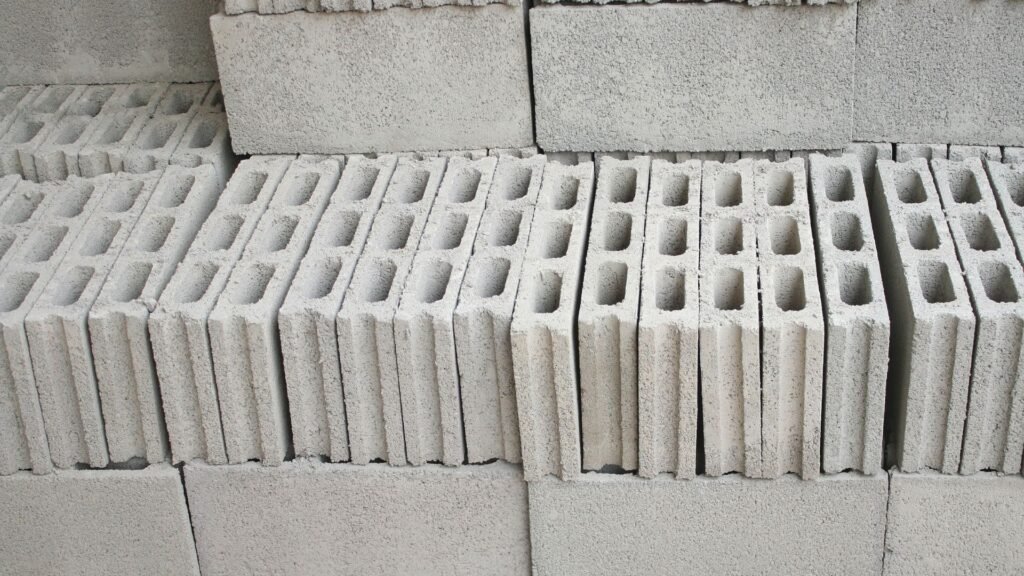
FAQs: About Concrete Blocks In NZ
What are concrete blocks used for in New Zealand?
Concrete blocks are commonly used for building retaining walls, boundary fences, garages, sheds, garden beds, and even full structural walls. They are popular for both residential and commercial construction because of their strength and versatility.
Are concrete blocks suitable for NZ weather conditions?
Yes. Concrete blocks are well-suited to New Zealand’s varied climate. They resist moisture, withstand high winds, and are not affected by pests. When reinforced and properly sealed, they also perform well in earthquake-prone areas.
What sizes do concrete blocks come in?
In NZ, the standard block size is typically 390mm x 190mm x 190mm. However, sizes vary depending on the manufacturer and type, solid, hollow, half blocks, and specialty units are available to fit different construction needs.
How much do concrete blocks cost in NZ?
Prices vary based on type and supplier, but standard concrete blocks usually range from $2 to $5 per block. Decorative and specialty blocks may cost more. Bulk orders or trade pricing may reduce costs for larger projects.
Can I build with concrete blocks myself?
Yes, DIY is possible for small projects like garden beds or short fences, especially with basic tools and proper guidance. Larger or load-bearing structures, however, should be handled by qualified builders to meet NZ building codes.
Do I need council consent for a concrete block wall?
In most cases, yes, especially if the wall is retaining soil or taller than 1.5 metres. Always check with your local council before starting construction to avoid fines or issues with compliance.
What’s the difference between solid and hollow concrete blocks?
Solid blocks are heavier and often used for load-bearing walls or foundations. Hollow blocks are lighter and easier to handle; they are typically reinforced with steel and filled with concrete when structural strength is required.
Are concrete blocks eco-friendly?
Concrete blocks have a long lifespan, require little maintenance, and are often made with recycled materials. Some manufacturers in NZ also offer blocks with lower carbon emissions or made from alternative sustainable binders.
Can concrete blocks be painted or plastered?
Yes. You can apply paint, plaster, or render to improve appearance or weather resistance. Just ensure the surface is clean, dry, and primed before applying any finishes. Waterproof coatings are also recommended for exposed areas.
Where can I buy concrete blocks in NZ?
You can find concrete blocks at major hardware stores like Mitre 10 and Bunnings, or through suppliers like Firth, Stevenson, and Concretec. Trade merchants and local masonry manufacturers also offer delivery for larger orders.
Conclusion
Concrete blocks in NZ offer a practical and durable solution for a wide range of building projects, from garden walls to garages and full structural builds. They’re affordable, weather-resistant, fire-safe, and easy to source locally, making them a smart choice for both DIYers and professional builders. Whether you’re working on a small backyard upgrade or a larger construction project, choosing the right type of block and using it correctly can make a big difference in the outcome. If you’re unsure about local building codes, structural support, or proper installation, it’s always best to speak with a licensed builder or council representative to avoid costly mistakes. Have a question about a specific project or experience to share? Drop it in the comments, we’d love to hear from you.
About the Author:
Mike Veail is a recognized digital marketing expert with over 6 years of experience in helping tradespeople and small businesses thrive online. A former quantity surveyor, Mike combines deep industry knowledge with hands-on expertise in SEO and Google Ads. His marketing strategies are tailored to the specific needs of the trades sector, helping businesses increase visibility and generate more leads through proven, ethical methods.
Mike has successfully partnered with numerous companies, establishing a track record of delivering measurable results. His work has been featured across various platforms that showcase his expertise in lead generation and online marketing for the trades sector.
Learn more about Mike's experience and services at https://theleadguy.online or follow him on social media:

